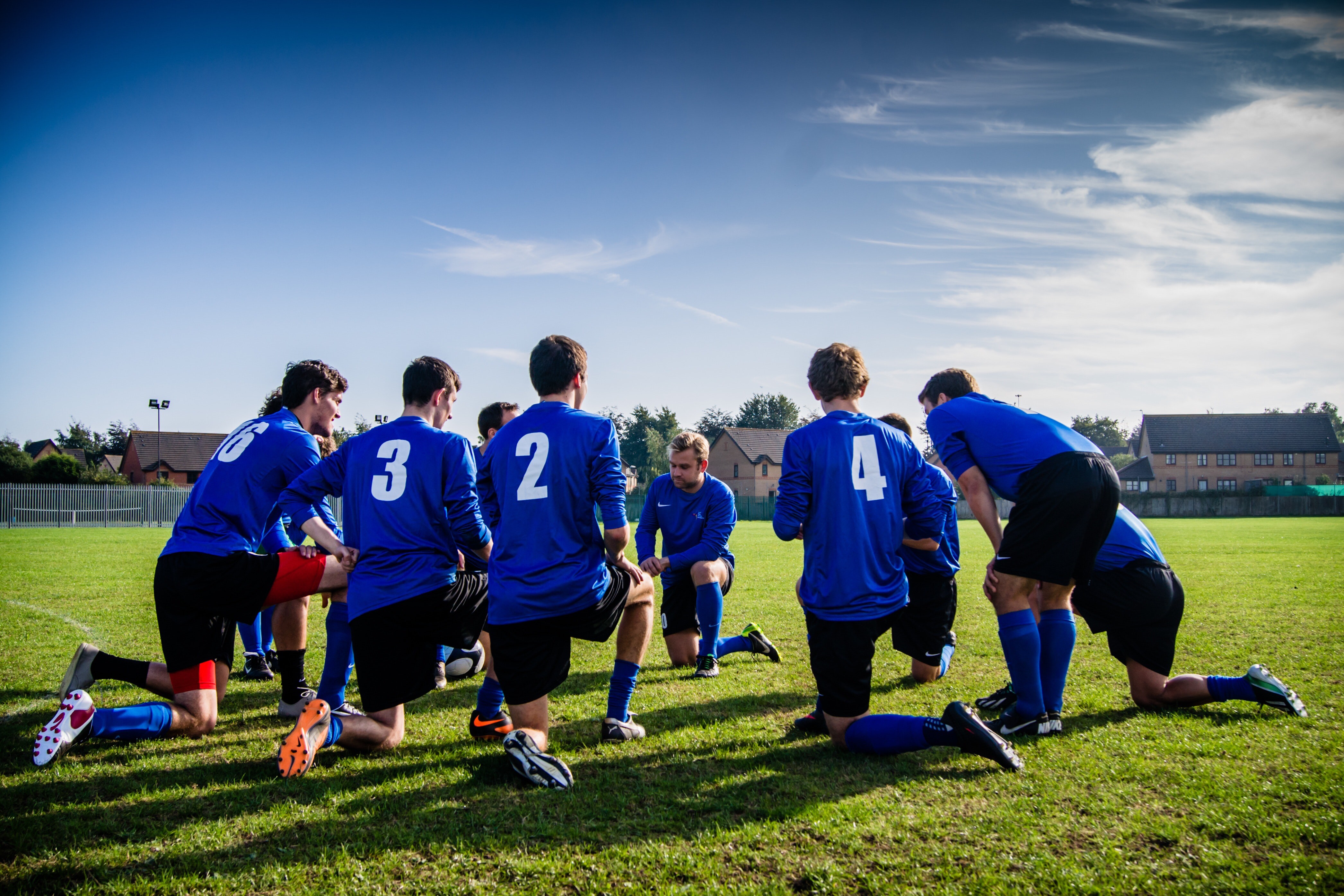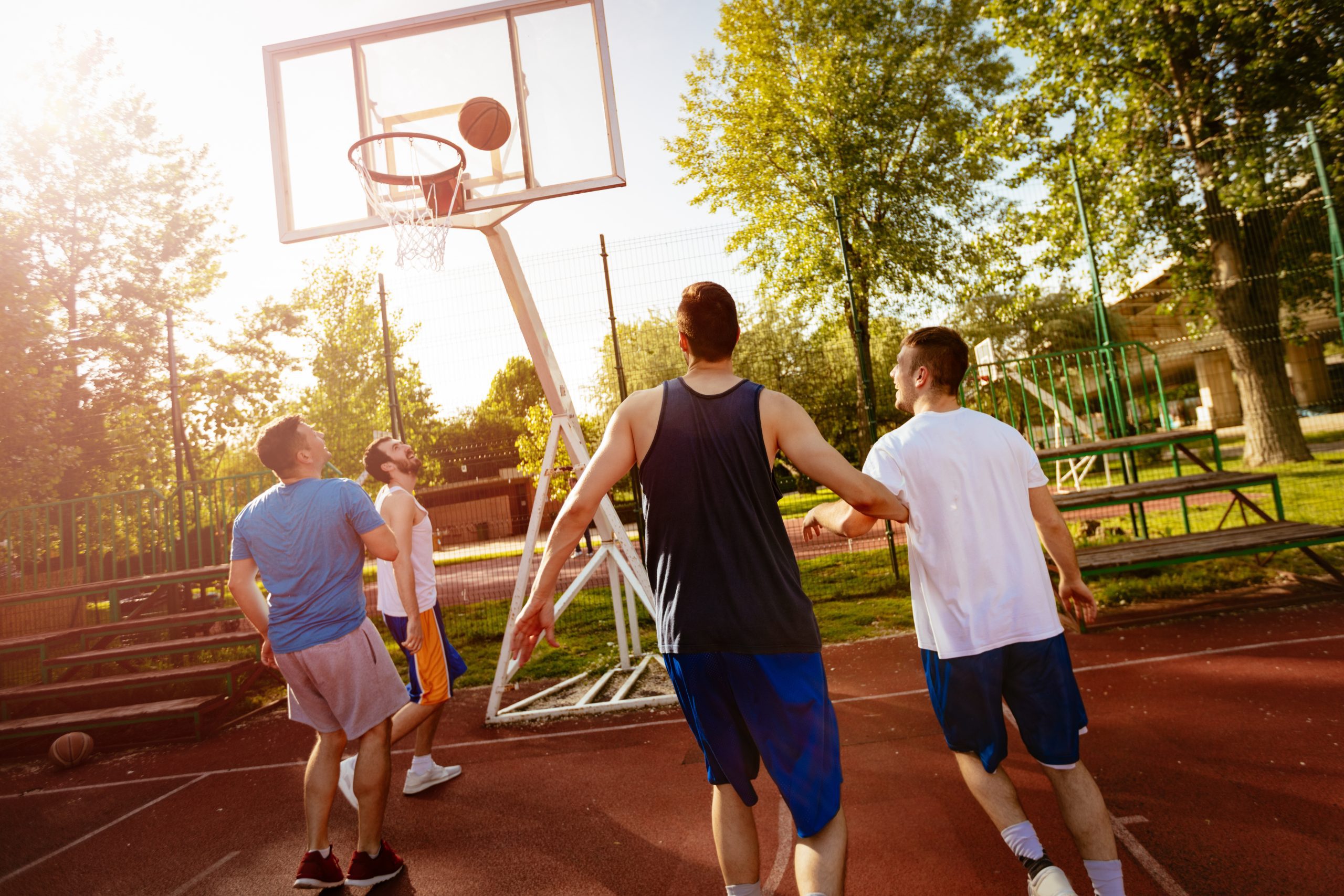- CoachList Blog
- Why should my child play youth sports?
Why should my child play youth sports?
By Team CoachList
Participating in youth sports offers numerous advantages that extend beyond physical activity. Regardless of the specific sport or the potential for a professional career, engaging in team sports equips children with invaluable life skills and fosters personal growth. In this comprehensive discussion, we’ll delve into the compelling reasons why your child should play youth sports and how it can positively impact their life.
Just because your child may not be a big sports fan doesn’t mean they shouldn’t try to play. Regardless of the type of activity, or whether he or she has the ability to go pro, there are all sorts of social and emotional skills that come from team sports that can benefit your child later in life…
1) Discipline, focus, and patience!
Youth sports provide an exceptional platform for children to develop discipline, focus, and patience. While sports are often associated with speed and physical prowess, they also demand various levels of mental attentiveness. Learning the nuances of a sport involves understanding how to concentrate on new information, process it effectively, and determine when to react. These skills are not only vital in the context of sports but also highly transferable to various aspects of life.
In addition to discipline, focus, and patience, engaging in youth sports also cultivates the ability to set and achieve goals. Whether it’s mastering a specific skill, improving their performance, or helping the team succeed, children learn the value of hard work, dedication, and perseverance. These qualities become valuable assets in their academic pursuits and future careers.
2) Self-esteem!
One of the significant advantages of engaging in sports is the boost it provides to a child’s self-esteem. It’s essential to recognize that progress in sports occurs incrementally. Whether it’s feeling physically better, witnessing tangible improvements in their skills, or receiving positive feedback from coaches, each small achievement contributes to a child’s growing sense of self-worth.

Teaching children to view setbacks as opportunities for growth and resilience is a valuable life lesson. As the famous football coach Vince Lombardi once said, “It’s not whether you get knocked down, it’s whether you get up.” Encouraging children to learn from losses and rebuild their confidence can lead to substantial personal growth. In essence, losing is not the end but an essential part of the journey, where the lessons learned can be even more valuable than winning.
3) Cognitive function and skill!
- Recollection: Children must remember the strategies, tactics, and techniques they have learned and apply them during the game.
- Adaptive Thinking: Sports require children to think on their feet, adapt to changing situations, and incorporate new knowledge into their actions.
- Reaction: In the heat of the moment, children must use their accumulated knowledge and quick thinking to react appropriately. This sharpens their ability to make effective decisions under pressure.
Participating in sports, regardless of a child’s skill level, teaches them how to be effective problem solvers, strategists, and quick thinkers. These cognitive skills are transferrable and can benefit them in their academic pursuits and future careers.
4) Interacting with authority!
Youth sports offer a unique environment for children to learn how to interact with authority figures, such as coaches and referees, as well as their peers. Learning to respect and respond to guidance from someone other than a parent or teacher is a crucial life skill.
In some sports, children may even have peers serving as captains or leaders, allowing them to collaborate and cooperate with their fellow players. These experiences foster teamwork, respect, and the ability to work effectively with a variety of individuals, which is invaluable for future social and professional interactions.
5) Physical Fitness and Health Benefits
Engaging in youth sports helps children maintain physical fitness and develop healthy habits from a young age. Regular physical activity not only contributes to better overall health but also reduces the risk of childhood obesity.
It promotes cardiovascular health, muscular strength, and endurance while helping children develop motor skills and coordination. These physical benefits can lead to a healthier and more active lifestyle as they grow into adulthood.
6. Social Skills and Communication
Team sports are inherently social activities, providing an excellent platform for children to develop essential social skills. They learn how to communicate, cooperate, and resolve conflicts with their teammates. Sports create a sense of camaraderie and the opportunity to build lasting friendships, which can positively impact a child’s social life and personal growth.
7. Time Management and Responsibility
Balancing sports with other commitments, such as schoolwork and household chores, teaches children valuable time management skills. They learn to prioritize tasks and fulfill their responsibilities, fostering a sense of accountability and independence.
8. Building Character and Values
Participating in sports also contributes to character development. Children learn the importance of integrity, fair play, and respect for rules and authority. These values lay a strong foundation for ethical behavior and good sportsmanship.
Conclusion
In conclusion, youth sports are not just about physical activity; they are a powerful tool for personal growth and skill development. Encouraging your child’s participation in youth sports can set them on a path to becoming more disciplined, focused, and patient individuals with heightened self-esteem and cognitive abilities. Moreover, they learn to interact with authority and peers effectively, building a strong foundation for their future social and professional lives.
As a parent, supporting your child’s involvement in youth sports can be one of the most meaningful investments in their overall development. So, whether your child aspires to be a professional athlete or simply wants to enjoy sports with friends, the lessons they learn through sports will benefit them for a lifetime.
SUBSCRIBE TO OURNEWSLETTER
GET FREE UPDATES
Archives
Featured Posts

Enhancing Your Basketball Skills During the Offseason: Four Essential Workouts
By Team CoachList
The offseason is no reason for basketball players to take a break. Basketball is a year-round sport, and dedicated players understand the importance of continuous improvement. The game demands a combination of speed, strength, stamina, explosiveness, power, and precise hand-eye coordination. To maintain and further develop these essential attributes, players need to stay active during

The key to great sportsmanship is literally in your head
By Team CoachList
Growing up as the son of a college basketball coach has its perks, though they are probably not the perks you think of right away. Sure, I had a great opportunity to become the best player on the team. The problem, though, was that I didn’t want to be on the team. The fact is,

Three Ways to Encourage Mental Toughness in Athletes
By Team CoachList
Summary: Athletes can train themselves to shake off emotions and return to being focused by remembering the work they’ve put in to being successful, reframing pressure and remembering how they handle each moment determines value not winning or losing… Mental toughness is a characteristic that can significantly impact an athlete’s performance and overall well-being. It

Nine Ways CoachList Will Help You Gain Visibility and Expand Your Business
By Team CoachList
In the dynamic world of sports and fitness coaching, gaining visibility and expanding your business can be a challenging endeavor. But with CoachList, you have a trusted partner that offers a range of powerful tools and resources to help you thrive in your coaching journey. Here are nine ways CoachList can transform your business and
